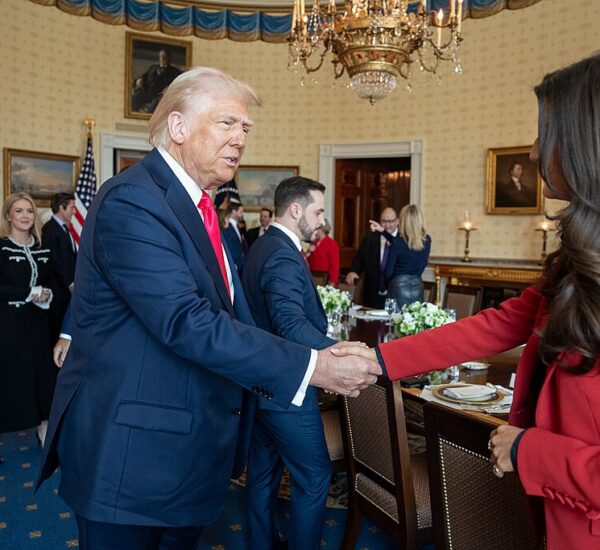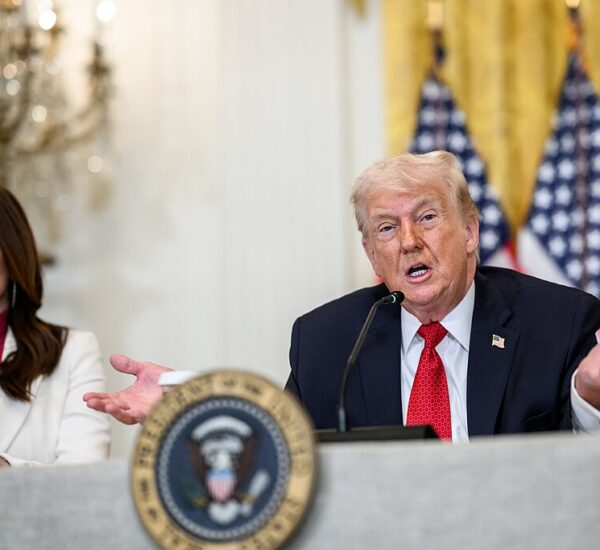Supreme Court Gives Trump A Break
Washington, D.C. — In a closely watched immigration battle, the U.S. Supreme Court has ruled in favor of President Donald J. Trump’s administration, reinforcing the President’s constitutional authority over foreign policy and deportation.
At the heart of the dispute is Kilmar Abrego Garcia, a Salvadoran national deported under controversial circumstances. While both the Trump administration and Garcia’s legal team are claiming victory, the real winner may be the Office of the President, which now holds stronger ground in navigating deportations and foreign negotiations.
What the Supreme Court Really Said
In a 5-4 decision, the Supreme Court upheld the right of federal judges to request updates on deportation-related cases — but stopped short of allowing them to force the Executive Branch to act on foreign soil.
“It is the exclusive prerogative of the President to conduct foreign affairs,” a Department of Justice spokesperson said. “This ruling confirms that activist judges cannot usurp that power.”
The court emphasized that judges must show “due regard” to the constitutional role of the presidency in matters of international diplomacy and national security.
DOJ Pushes Back Against Obama-Appointed Judge
Back in a Maryland courtroom, U.S. District Judge Paula Xinis — appointed by President Obama — demanded immediate updates on efforts to bring Garcia back from El Salvador’s Terrorism Confinement Center (CECOT).
The Justice Department pushed back, arguing that the Supreme Court ruling does not authorize lower courts to override the president’s powers under Article II of the Constitution.
“We interpret the order differently,” said Deputy Assistant Attorney General Drew Ensign, making clear that the administration was not under obligation to follow Judge Xinis’s timeline.
Daily Updates Ordered — But the Administration Stands Firm
Judge Xinis, visibly frustrated, ordered the government to provide daily status reports on Abrego Garcia.
“It’s quite basic,” she said. “I’m asking where one man is. This is not a state secret.”
Still, the Trump administration held its ground, emphasizing the case involves a foreign national held by a sovereign government and that the U.S. cannot compel another nation to act.
Stephen Miller: “This Is a Clear Constitutional Win”
Trump advisor Stephen Miller took to social media to praise the ruling:
“The Supreme Court affirmed that a federal district court cannot seize foreign affairs powers. The illegal alien is in the custody of a sovereign nation. Period.”
Miller’s stance echoed earlier arguments from the administration, noting that the U.S. cannot force foreign governments to hand over detainees — even in disputed deportation cases.
Who Is Kilmar Abrego Garcia?
Garcia’s attorneys claim he is not a gang member but a victim of mistaken identity, wrongly accused of MS-13 affiliation. The allegations stem from a confidential informant claiming he was active in New York — a state where Garcia has never lived, according to his family.
His wife, Jennifer Vasquez Sura, a U.S. citizen, told reporters her husband was “abducted and disappeared” by the Trump administration.
But federal immigration authorities stand by their actions, citing national security concerns and evidence suggesting criminal affiliations.
Similar Case Highlights Trump’s Use of Alien Enemies Act
This ruling comes on the heels of another legal battle over the Alien Enemies Act (AEA), where the administration deported over 100 Venezuelans. The Supreme Court partially upheld Trump’s use of the AEA but ruled that deportees must be allowed to challenge removal in the state they are detained.
White House Press Secretary Karoline Leavitt called the decision a “massive legal victory,” stating:
“This was a smackdown to a rogue, left-wing, low-level district judge trying to block President Trump from using his constitutional authority.”
Trump’s Leadership and the Bigger Picture
As President Nayib Bukele of El Salvador prepares for a White House visit, the Trump administration’s tough stance on immigration continues to resonate with millions of Americans who want secure borders and respect for executive authority.
President Trump has long touted his success negotiating the return of detained Americans. Now, he’s using the courts to reclaim presidential powers that many argue have been weakened by judicial activism.
Final Thoughts: A Crucial Reminder of What’s at Stake
This case is more than a legal back-and-forth. It’s a reminder that American sovereignty, presidential authority, and national security are on the line.
With courts increasingly used to challenge border enforcement, this ruling strengthens President Trump’s position to protect America’s borders, uphold the Constitution, and defend the rule of law.






